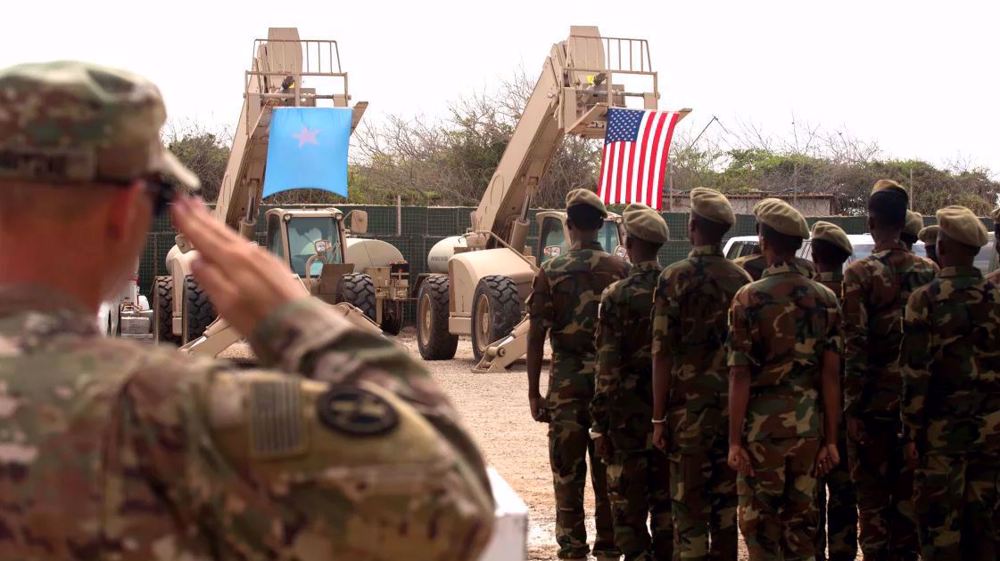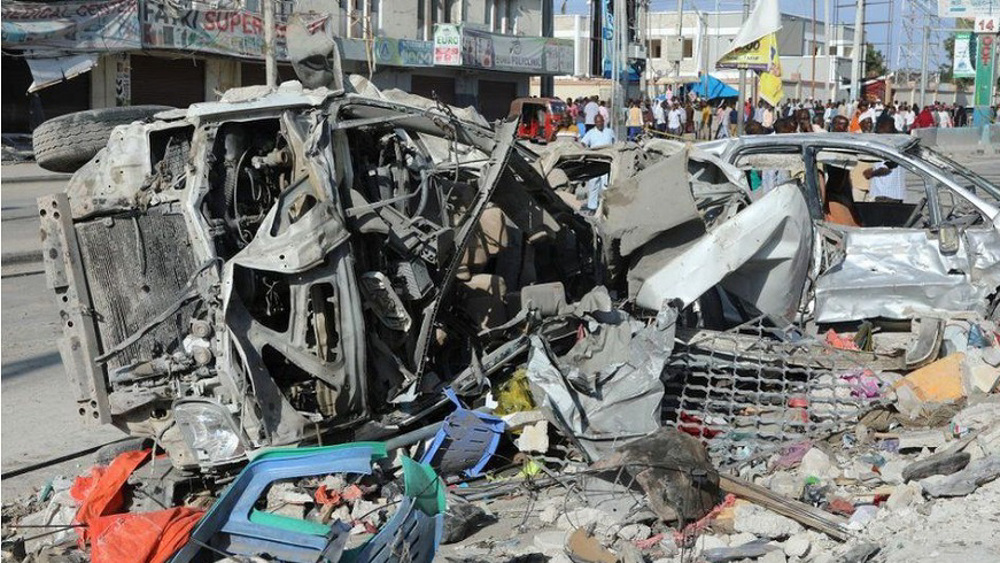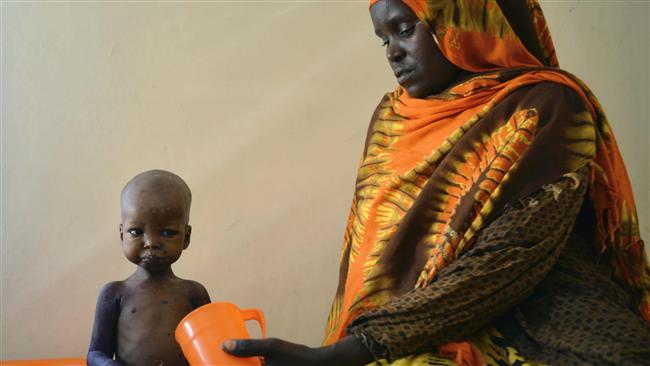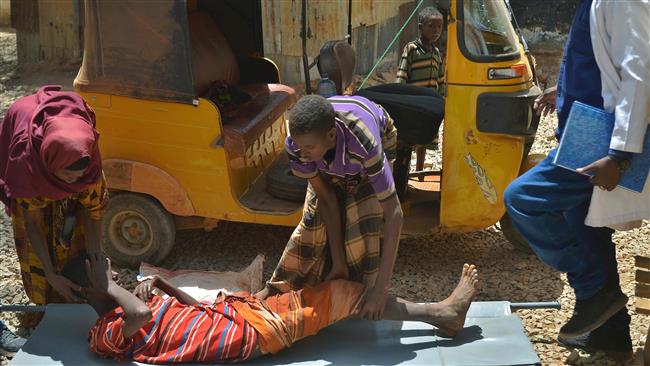Al-Shabab militants blocking aid to starving kids in Somalia, warns charity
A survey by an international charity shows that lack of access to hungry parts of Somalia controlled by the al-Shabab Takfiri militant group is threatening the lives of thousands of malnourished children as the Horn of Africa nation risks falling back into famine.
The survey conducted by Save the Children found that severe acute malnutrition had "skyrocketed" to more than three times the emergency threshold of two percent in Hiraan region's Mataban District.
Meanwhile, Hassan Noor Saadi, the charity’s Somalia country director, said on Thursday that children were in desperate need of emergency food and life-saving assistance.
"Scaling up to provide services to everyone affected is a challenge because we have around two million people living in al-Shabab-controlled areas," Saadi said, adding, "Getting aid to them is not easy."
"If these children are not given special foods to help them recover, their immunity will go down and they will become prone to opportunistic diseases," Saadi noted.
"They can either die from these diseases or from hunger."
Elsewhere in his remarks, Saadi also pointed out that Somali's erratic spring rains were not good enough to guarantee crop growth, while livestock continue to die, leaving families with little to feed their children. "When animals die, there is no food, no milk, and no assets to make money off and subsequently buy food."
On Monday, teams from the medical charity Medecins Sans Frontieres (MSF) announced that they had treated more than 6,000 children with severe acute malnutrition in the area since January.
"These numbers are the highest our teams there have seen in ten years," MSF spokeswoman Rosie Slater said.
The spokeswoman also warned of a humanitarian crisis across the violence-hit region, saying, "An acute humanitarian emergency is unfolding."
Slater also said that 67 children died in June alone.
According to the United Nations children's agency (UNICEF), over 275,000 children potentially face life-threatening severe acute malnutrition this year across Somalia.
The United Nations says some 714,000 Somalis have fled their homes due to drought and failed crops since last November.
The number will add to one million previously internally displaced Somalis.
In 2011, some 260,000 Somalis died of famine caused by drought and lack of access to humanitarian aid.

The international community has failed to tackle the famine crisis due to the ongoing war and internal conflicts in the African country.
The long-chaotic Horn of Africa nation has been the scene of deadly clashes between government forces and al-Shabab militants since 2006.
The Takfiri militant group was forced out of the capital by African Union troops in 2011 but still controls parts of the countryside and carries out attacks against government, military and civilian targets seemingly at will in Mogadishu and regional towns.
The extremist group is just one of the challenges facing the new Somali government, which is still struggling to expand its authority beyond the capital and other selected areas.
What led to dilly-dallying in ICC arrest warrants against Netanyahu, Gallant
Palestinians flee Gaza City suburb after Israel issues forced evacuation order
Iran says will discuss key nuclear, regional issues with France, Germany, UK
VIDEO | Israeli archaeologist killed in Southern Lebanon
VIDEO | Israeli airstrike on Lebanon's army base kills soldier, injures 18 others
Sirens sound across Tel Aviv as Hezbollah fires barrage of missiles at Israeli target
Israeli ‘archeologist’ who toured south Lebanon in military uniform to falsify history
The importance of Venezuela for Iran















 This makes it easy to access the Press TV website
This makes it easy to access the Press TV website